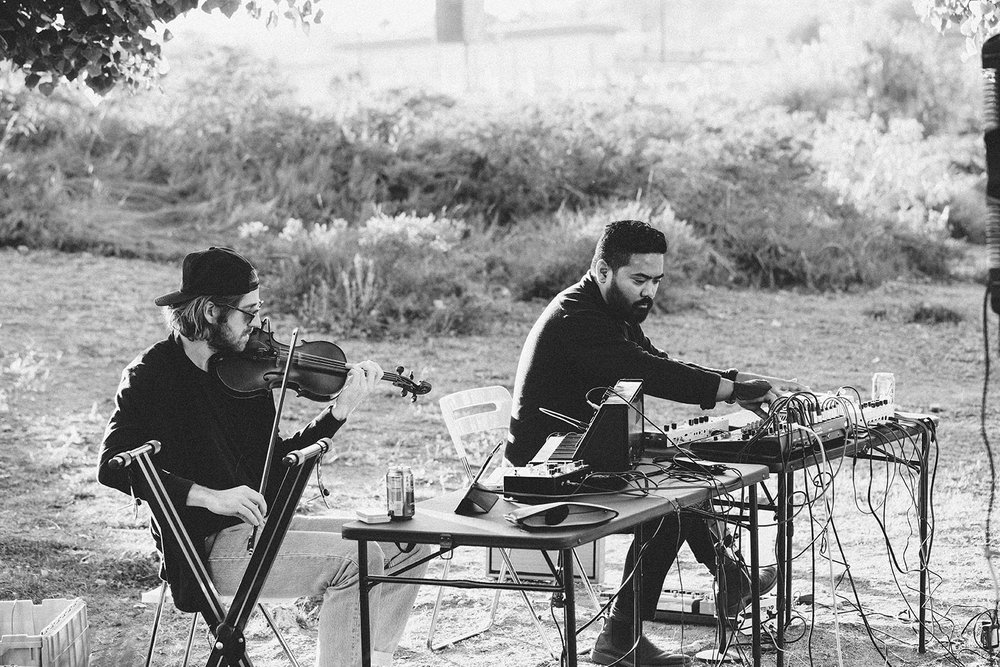
On Jellywish Florist invite listeners to question everything — to imagine a world where magic, surrealism, and the supernatural are our companions in day-to-day life. It dares to present a realm of possibility and imagination in a time that feels evermore prescriptive, limiting, and awful. The album finds Florist exploring life’s big questions without offering silver linings, morals, or definitive answers. Instead, the band asks perhaps the most difficult of questions: Is it possible to break free from our ingrained thought cycles and pedestrian way of life? That, Florist posits, may be the only way to be truly happy, fulfilled, and free.
Singer, guitarist, and principal songwriter Emily Sprague says that the record is purposely complicated. “It’s a gentle delivery of something that is really chaotic, confusing, and multifaceted,” she explains. “It has this technicolor that’s inspired by our world and also fantasy elements that we can use to escape our world.”
“We enter an observational fever dream about floating through liminal space between lifetimes, individual perceptions. There is reflection on our connectedness in joy and suffering through the wish for a peaceful place for our spirits to live and land,” Sprague explains. “‘Have Heaven’ establishes the world of the album to be not quite always lucid, but rather a perspective that is blended into the worlds of the magic and death realms swirling around us. The chorus is a chant that pleads for a better symbiosis between these worlds, and between our earthly forms trying to survive alongside each other, bound to the systems we must exist within.”
Jellywish is an exercise in multidimensional world building. The album’s panoramic cover art, which looks like something out of a Henry Darger volume, wraps the music in a collage of color that presents as science fiction-adjacent, hinting at something mysterious, fantastical, and mythological. Inside the album’s jacket, however, are tender and catchy sonic meditations on life’s most knotty subjects: life, death, earth, reality, relationships, joy, and pain. Taken together, Florist offers an acute sense of the band at this moment, one that worries about the world and its place in it. In contrast, it also presents an alternative to the doldrums of day-to-day life, and the necessary suggestion that very different things may be true at the same time.
With Jellywish, Florist offers a complex album in a time that is anything but simple. In mining the chaos and wonder of physical and spiritual worlds, the band holds a mirror to itself to the great benefit of all. It tells us that we are not alone, and challenges us to believe in magic.

Marc Merza
Marc Merza (born Marchael San Felix Merza, May 13, 1989) is a Filipino-American artist and musician based in Los Angeles, California. His recordings are at times improvisational and spontaneous, and other times, heavily crafted, sculpted and reworked. He has spent the past ten years performing and collaborating with other musicians in Brooklyn (New York), Oakland (California), Tokyo (Japan), Lisbon (Portugal), Manila (Philippines) and beyond. He often composes on guitar, clarinet and Kulintang (a Filipino gong set) to speak to others, but the use of tape loops, field recordings and electronic equipment are not foreign in Marc’s music.



